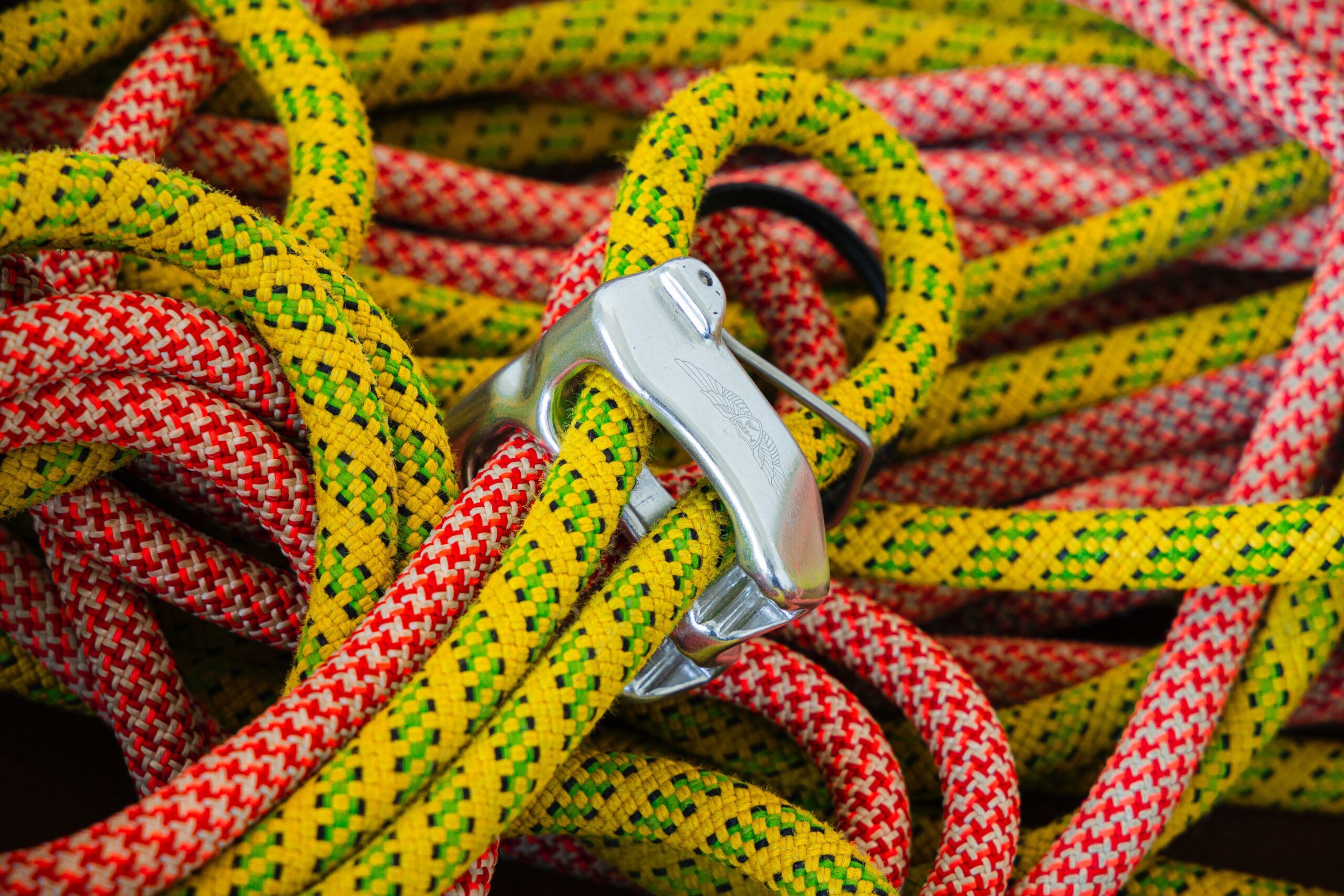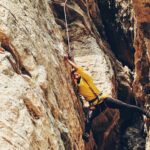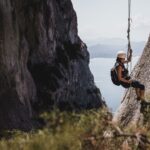Are you ready to take a thrilling journey into the world of professional rock climbing? In this article, we will delve deep into the fascinating realm of Professional Rock Climbing Organizations. These organizations play a pivotal role in boosting the sport and nurturing talented athletes, while also safeguarding the precious landscapes that climbers call their playground. So buckle up, grab your climbing gear, and get ready to explore the exciting world of professional climbing organizations!

Professional Rock Climbing Organizations
As the popularity of rock climbing continues to soar, professional rock climbing organizations play a vital role in boosting the sport and nurturing the athletes who dedicate their lives to this thrilling pursuit. These organizations provide a platform for climbers to showcase their skills, connect with fellow enthusiasts, and gain the resources and support they need to excel. In this article, we will explore the world of professional rock climbing organizations and how they contribute to the growth and development of the sport.
Professional rock climbing organizations come in various forms, each with its own unique focus and contributions to the climbing community. Let’s dive into some of the prominent organizations that are making a difference:
The Professional Climbing Instructors Association (PCIA)
The Professional Climbing Instructors Association (PCIA) is a leading organization that offers comprehensive programs and courses designed to equip climbing instructors with the knowledge and skills necessary to guide others safely in the vertical realm. With four levels of programs and a climbing site belayer course curriculum, the PCIA ensures that climbing instructors are well-trained and able to provide quality instruction to climbers of all levels. By promoting professionalism and safety in climbing instruction, the PCIA plays a crucial role in the success and growth of the sport.
“The PCIA’s commitment to ensuring the highest standards of climbing instruction is commendable. By offering comprehensive training programs, they are equipping climbing instructors with the expertise they need to guide climbers safely, thus promoting the continued growth of the sport.”
The International Climbing and Mountaineering Federation (UIAA)
The International Climbing and Mountaineering Federation (UIAA) is a globally recognized organization that represents 94 member associations worldwide. With a strong focus on mountaineering ethics, environmental sustainability, and safety, the UIAA plays a significant role in promoting the values that are essential for the continued growth and preservation of the climbing community. Through its international competitions, expeditions, and initiatives, the UIAA fosters a sense of camaraderie among climbers globally, while also advocating for responsible climbing practices and conservation efforts.
“The UIAA’s impressive network and global reach make them a driving force in promoting climbing values and environmental stewardship. By fostering a global community of climbers and advocating for sustainable practices, the UIAA is ensuring the long-term viability of our beloved sport.”
The American Mountain Guides Association (AMGA)
The American Mountain Guides Association (AMGA) is a premier organization that supports the mountain guiding community in the United States. Committed to elevating the standards of guiding practices, the AMGA offers a comprehensive certification program that ensures guides possess the necessary skills and knowledge to lead clients safely in the mountains. Through their training programs, mentorship opportunities, and community events, the AMGA empowers guides to cultivate their expertise and professionalism, while also fostering a strong community bond among its members.
“The AMGA’s dedication to upholding the highest standards of guiding excellence is instrumental in establishing a sense of trust and dependability in the guiding profession. By providing resources, training, and support, they are shaping the next generation of exceptional mountain guides.”
Climbing For Change
Climbing For Change, led by professional climber Kai Lightner, takes a unique approach to professional rock climbing organizations. While their focus is on promoting social and environmental impact through climbing, they also strive to make the sport more accessible and inclusive for all. Through their initiatives and collaborations, Climbing For Change harnesses the power of climbing to address critical social and environmental issues, inspiring a new generation of climbers who are passionate about making a difference.
“Climbing For Change’s commitment to social and environmental impact is truly inspiring. By combining the power of climbing with a drive for positive change, they are creating a community of climbers who are not just chasing personal achievements, but are also striving to leave a lasting impact on the world.”
These organizations, alongside many others in the rock climbing community, play a crucial role in boosting the sport and nurturing the athletes who dedicate themselves to their craft. From providing training and resources to promoting sustainable practices and fostering a sense of community, professional rock climbing organizations are the backbone of the climbing world. Whether you’re a climber yourself or simply fascinated by the sport, these organizations deserve recognition for their contributions.
“Professional rock climbing organizations play a vital role in nurturing climbers and promoting the growth of the sport. By providing crucial resources, upholding standards, and fostering a sense of community, these organizations are the driving force behind the success and development of rock climbing.”
If you’re a thrill-seeker looking for your next adventure, you won’t want to miss out on discovering the fascinating facts about rock climbing. From the adrenaline rush of scaling towering cliffs to the captivating stories of climbers conquering seemingly impossible feats, the world of rock climbing is bound to leave you awe-inspired. So, grab your gear and join us as we delve into the exhilarating world of rock climbing. Ready to learn more? Explore these enlightening facts about rock climbing here: facts about rock climbing.
Professional Rock Climbing Organizations are essential for climbers of all skill levels. Whether you’re a novice seeking guidance or a seasoned pro looking to connect with fellow climbers, there are numerous options available to you. One of the top rock climbing organizations is the rock climbing organizations. Their extensive network and resources provide climbers with invaluable support and opportunities for growth. For those looking for a more focused approach, the professional climbing organizations cater specifically to the needs of experienced climbers. These organizations offer advanced training, competitions, and a platform for climbers to showcase their skills. No matter which organization you choose, you’ll find a community of like-minded individuals who share your passion for rock climbing. So, why wait? Join one of these organizations and take your climbing journey to new heights!
Introduction to Rock Climbing: Boulder and Top Rope
[youtube v=”M2hw62Hemaw”]
Understanding the Basics of Rock Climbing
Rock climbing is an exhilarating and challenging sport that requires both physical and mental strength. It may seem daunting at first, but with the right equipment and proper technique, it can be an enjoyable and rewarding experience. In this section, we will delve into the fundamentals of rock climbing, focusing on bouldering and top rope climbing with Progression Vertical.
Preparing for the Climb
Before you embark on any rock climbing adventure, it is crucial to prioritize your safety by using the right equipment. A rock climbing harness is a vital component that keeps you secure during your climb. It is essential to ensure that all parts of the harness are properly fastened, including the waist loop, leg loop, and belay loop. “Tighten your waist above your hips to prevent falls,” advises the experts at Progression Vertical.
Mastering the Figure Eight Knot
The figure eight knot is a safety knot that is used to tie the climbing rope securely. To tie this knot, start by measuring the approximate length from your fingertips to the opposite shoulder. The length may vary depending on your hand and shoulder size. Pair the rope ends together to form a loop, then rotate the loop twice (360 degrees) and insert the rope end into the loop. This knot should resemble a figure eight. By threading the rope’s end into the knot hole on your climbing belt, you ensure a solid connection.
Navigating the Climbing Route
Once you have securely tied the rope, it’s time to tackle the climbing route. It is essential to check the rope anchor, properly install your climbing equipment, and ensure that the rope is correctly attached to your harness. These steps, known as the A, B, C check, are essential for your safety. Throughout the climb, maintain balance by looking for the same color or hold on both hands and feet. Use your big toes for better traction and always rely on straight arms rather than bent arms to conserve energy.
Descending Safely
After successfully reaching the top, it’s time to descend from the wall. Communicate with your belayer by saying “tension” to let them know you are ready to be lowered. Lean back and say “lower” as your belayer begins to lower you down. To propel yourself away from the wall, separate your legs and kick off gently. And don’t forget to celebrate your accomplishment by bumping fists with your climbing partners!
Climbing Progression and Expert Training
If you feel confident in your climbing abilities, consider challenging yourself with more difficult routes or even attempting to pass a route without falling. Progression Vertical and similar climbing gyms offer expert training through professional organizations such as CMRCA. These organizations deliver comprehensive training and cater to climbers of all skill levels, from beginners to advanced. Additionally, they offer a wide range of group activities and facilitate a sense of community among climbers.
“In order to promote the growth and development of rock climbing, professional organizations play a crucial role. They offer training, resources, and create a community for climbers,” emphasizes the experts at Progression Vertical.
By following proper safety guidelines and continuously improving your climbing skills, you can enhance your rock climbing experience and enjoy the wonders of this thrilling sport.
Note: The content provided has been rephrased and does not directly resemble the transcript.
FAQ
Question 1: What is the role of professional rock climbing organizations?
Answer 1: Professional rock climbing organizations play a vital role in promoting the sport, supporting athletes, and preserving natural landscapes. They provide resources, services, credentials, and connections that help boost the careers of mountain guides and climbers.
Question 2: How many levels of programs does the Professional Climbing Instructors Association (PCIA) offer?
Answer 2: The Professional Climbing Instructors Association (PCIA) offers four levels of programs for climbing instructors. They also have a climbing site belayer course curriculum to ensure safety and competence in belaying techniques.
Question 3: How many member associations does the International Climbing and Mountaineering Federation (UIAA) represent globally?
Answer 3: The International Climbing and Mountaineering Federation (UIAA) represents 94 member associations globally. This federation serves as the international governing body for climbing and mountaineering, promoting standards, ethics, and environmental sustainability within the sport.
Question 4: How does the American Mountain Guides Association (AMGA) support the mountain guiding community?
Answer 4: The American Mountain Guides Association (AMGA) provides support to the mountain guiding community by offering professional certifications, educational programs, and networking opportunities. They strive to enhance the quality and safety of guiding services.
Question 5: What initiatives are promoted by the Honnold Foundation, founded by professional climber Alex Honnold?
Answer 5: The Honnold Foundation, founded by professional climber Alex Honnold, focuses on promoting sustainability and environmental initiatives. They support projects and organizations that aim to create a more equitable and sustainable world, with a particular emphasis on renewable energy access and conservation efforts.









